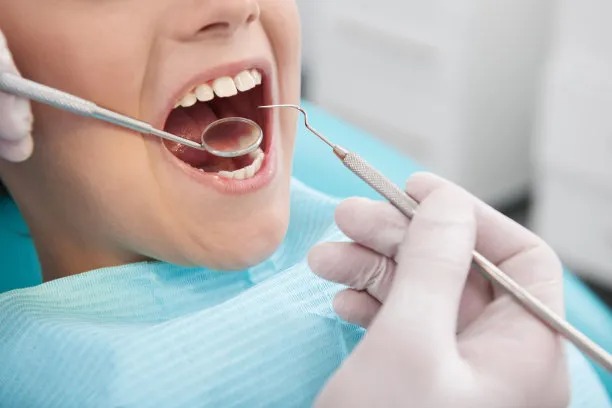Summary: Dental fillings are essential for restoring tooth function and aesthetic appeal while preventing further decay. However, a successful dental filling experience is characterized by proper preparation, understanding the procedure, adequate post-treatment care, and maintaining oral health. This article explores essential guidelines to ensure a smooth dental filling process and emphasizes maintaining oral hygiene afterward to promote longevity and overall health.
1. Preparation Before Your Dental Appointment

Proper preparation is crucial for a successful dental filling experience. First, its important to schedule your appointment at a time when you can allow enough time for the procedure and any needed recovery. Avoid using any dental products for at least 24 hours before your visit. Consult your dentist about any medications or supplements you take, as some may require adjustments prior to treatment.
Secondly, ensure that you have a thorough dental evaluation beforehand. This assessment will help identify the extent of decay and determine the best type of filling material for your dental needs. Having all dental records on hand can streamline the process and provide vital information to your dentist.
Lastly, mentally prepare for the appointment. Knowing what to expect can alleviate anxiety. Educate yourself about the filling procedure, types of fillings available, and their associated benefits. Familiarity can transform fear into confidence, resulting in a more positive experience.
2. Understanding the Filling Procedure
Understanding the dental filling procedure can greatly reduce anxiety during the treatment. The process typically begins with anesthesia to numb the affected area, ensuring you remain comfortable throughout. Your dentist will then remove any decayed tissue and clean the cavity, preparing it for the filling material. This step is crucial to prevent any residual decay and promote optimal healing.
Next, the dentist will apply the filling material, which can be composite resin, amalgam, or another substance based on your needs. Understanding the pros and cons of each filling type can enhance your knowledge and help you participate in the decision-making process about your treatment.
Finally, your dentist will shape and polish the filling to ensure it fits comfortably and functions like a natural tooth. Make sure to ask questions throughout the procedure to clarify any doubts, contributing to a more informed and less stressful experience.
3. Post-Treatment Care and Recovery
After receiving a dental filling, proper post-treatment care is essential for promoting healing and preventing complications. First and foremost, avoid eating or drinking anything until the anesthesia wears off fully, as this can lead to accidental injury. When you’re ready to eat, start with softer foods and avoid chewy or sticky snacks for the first few days.
Additionally, be vigilant with your oral hygiene. Brush your teeth gently but thoroughly at least twice a day, ensuring you clean around the filled tooth. Use fluoride toothpaste to strengthen surrounding teeth. Dont forget to floss daily, as this helps prevent any buildup of plaque and food particles between teeth.
Finally, keep an eye on how the filling feels over the following days. Minor sensitivity is normal, but if you experience significant pain, or if the filling feels uneven, contact your dentist immediately. Timely intervention can prevent further complications and help maintain your oral health.
4. Maintaining Oral Health After the Filling
To ensure the longevity of your dental filling and overall oral health, make regular dental check-ups a priority. Scheduled visits allow your dentist to monitor your filling and identify any potential issues early on. Ideally, routine cleanings and examinations should occur every six months.
In addition to professional care, practice preventive measures at home. Maintain a balanced diet that limits sugary snacks and drinks, as these can contribute to decay, even in filled teeth. Drinking plenty of water can help rinse away food particles and keep your mouth hydrated.
Lastly, consider using mouthwash as part of your daily routine. Antimicrobial mouth rinses can help reduce plaque and promote healthier gums, enhancing your overall oral hygiene. Following these guidelines can ensure your filled tooth remains healthy and functional.
Summary:
Ensuring a successful dental filling experience intertwines careful preparation, understanding the filling procedure, diligent post-treatment care, and ongoing oral health maintenance. By following these guidelines, patients can expect a smooth journey through treatment and achieve long-lasting benefits for their dental health.
This article is compiled by Vickong Dental and the content is for reference only.
Vickong Dental
Vickong Dental is a large medical group established in Hong Kong in 2008 by professors from well-known medical universities in Guangdong and Hong Kong, as well as medical doctors from key national '985' universities (including Master's supervisors and senior professors). The chain of branches brings together expert dentists with PhDs and Master's degrees from Hong Kong and Mainland China, committed to providing high-quality dental treatment.
"Vickong Dental Practices the University Motto of 'Healing and Serving Society,' with a Stable Operation for Sixteen Years. It Has Been honored with Hong Kong Enterprise Leaders's Choice,' and is a Global Trusted Implant Center for the Nobel Implant System. Recommended by Hong Kong Metro Broadcast and Guangdong Television, it Serves Customers from Over Thirty Countries and Regions, Gaining the Trust and Favor of Citizens from the Guangdong-Hong Kong-Macau Greater Bay Area and Surrounding Cities.

Thousands of customers' unanimous praise
The most recognized and highly recommended dental service by customers in the Guangdong-Hong Kong-Macau Greater Bay Area
We Ensure You Receive Detailed Care and Attention Here
Hong Kong standards, Shenzhen prices, Your Trusted English-speaking dentists

Vickong Dental Medical-Grade Instrument Disinfection Process
Vickong Dental Medical-Grade Instrument Disinfection Process

Vickong Dental Chain: A Warm and Comfortable Environment for Treatment






Appointment Hours

Q&A
Why choose Vickong Dental?
Vickong Dental practices the university motto 「Medicine to Benefit Society」, with each branch bringing together highly qualified dentists with doctoral and master’s degrees from Hong Kong and the Mainland, and has maintained seventeen years of steady operation。Recipient of 「2024 Hong Kong Enterprise Leaders Brand」, 「2025 Hong Kong Enterprise Leaders Brand」, a Nobel Biocare Global Trusted Implant Center, and a brand recommended by Metro Radio Hong Kong and Guangdong TV。
To date, we have served customers from more than thirty countries and regions,earning exceptionally high word-of-mouth recognition and trusted recommendations from residents across the Guangdong-Hong Kong-Macao Greater Bay Area and surrounding cities
We have eight major branches in Zhuhai、Shenzhen,and a consultation and service assurance center in Hong Kong,so you can book a free consultation at any time for any questions,which is very reassuring.
If I do not accept the quotation after the CT scan, will I be charged??
No! As long as the actual treatment has not started, you will not be charged any fees.
Will there be any additional charges during the treatment process?
No, there won’t be any additional charges. Before treatment begins, we will clearly explain the treatment plan and its corresponding fees. Only after the patient agrees and signs the consent form will we proceed with the dental service.
Can I pay in Hong Kong dollars?
Yes. Vickong Dental accepts payment in Hong Kong dollars. The amount will be converted based on the exchange rate of the day, and the applicable rate will be clearly communicated to you in advance.
Can I reschedule my appointment at any time?
Yes. Please contact us via **WeChat** or **WhatsApp** as early as possible, providing your original appointment time and details, along with your preferred new date and time slot for rescheduling.













